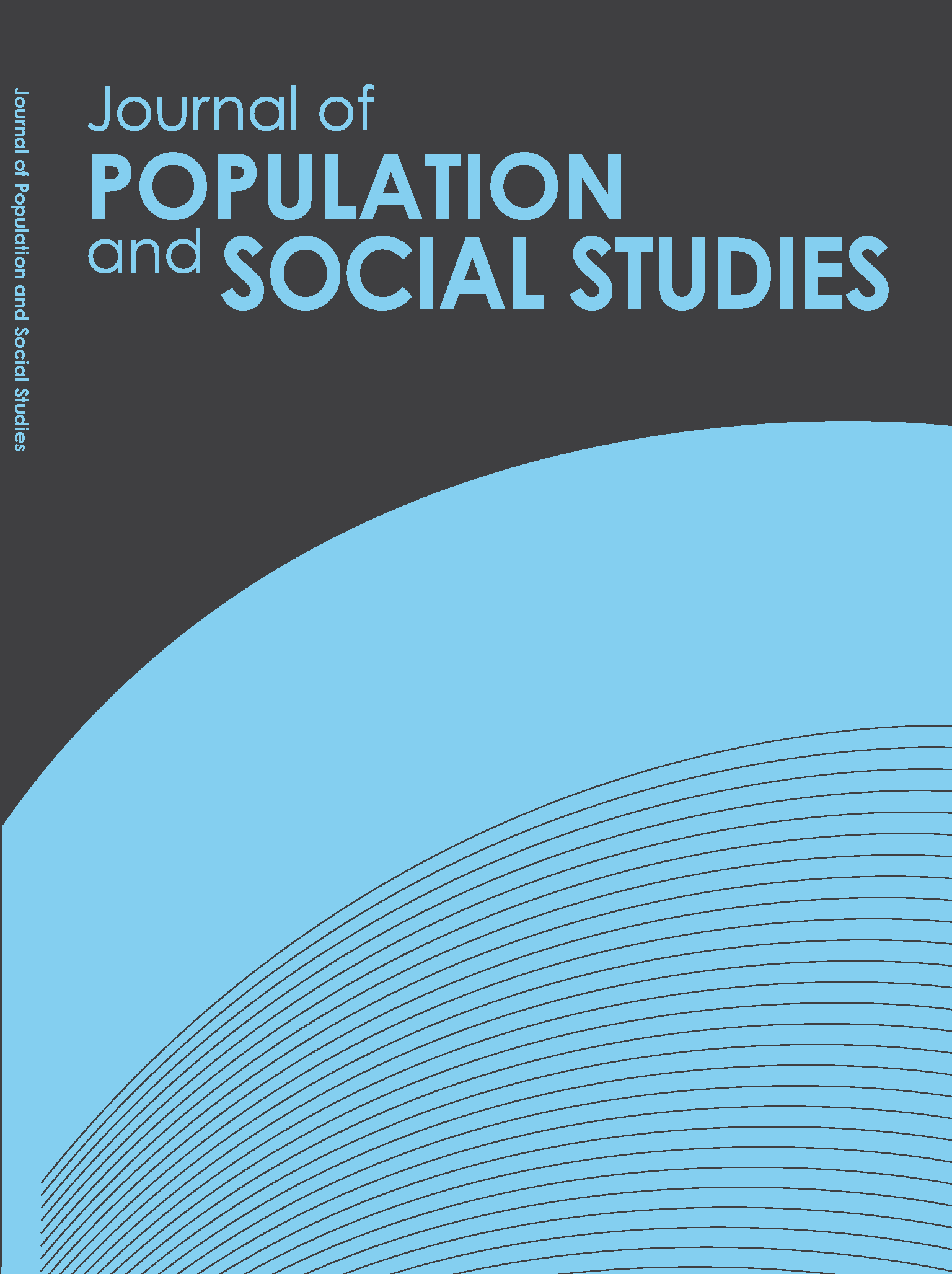Economic Mobility of Migrants in Kanchanaburi DSS, Thailand
Main Article Content
Abstract
Based on a longitudinal data set of the Kanchanaburi Demographic Surveillance System (KDSS) between 2000 and 2004, we conducted an exploration of foreign-born economic status mobility. We assess whether
economic fortunes of migrants are shifting in patterns parallel to the non-Thai but born in Thailand, and to the Thai population, or if they progress or regress in a distinct pattern. Results indicate the disadvantaged economic position of foreign-born individuals and their households. Throughout the four year period, the foreign-born experience very little upward economic mobility. They start off poor and tend to stay poor for a number of years. Findings are consistent with previous studies in long-history immigration contexts suggesting that the disadvantages that migrants encounter tend not to diminish during their lifetimes. Our study also finds that upward economic mobility among migrants is selective on education and on certain occupational sectors. Our analysis offers an initial exploration of the socioeconomic positions of migrants and their incorporation into Thai society. The study has implications for policy makers as they consider national socioeconomic plans in order that certain social groups are not left behind, especially cross-border migrants whose arrivals have risen and persisted, and whose settlements have often been
lengthy, if not permanent.
economic fortunes of migrants are shifting in patterns parallel to the non-Thai but born in Thailand, and to the Thai population, or if they progress or regress in a distinct pattern. Results indicate the disadvantaged economic position of foreign-born individuals and their households. Throughout the four year period, the foreign-born experience very little upward economic mobility. They start off poor and tend to stay poor for a number of years. Findings are consistent with previous studies in long-history immigration contexts suggesting that the disadvantages that migrants encounter tend not to diminish during their lifetimes. Our study also finds that upward economic mobility among migrants is selective on education and on certain occupational sectors. Our analysis offers an initial exploration of the socioeconomic positions of migrants and their incorporation into Thai society. The study has implications for policy makers as they consider national socioeconomic plans in order that certain social groups are not left behind, especially cross-border migrants whose arrivals have risen and persisted, and whose settlements have often been
lengthy, if not permanent.
Article Details
How to Cite
Jampaklay, A., Korinek, K., & Ratchasee, S. (2010). Economic Mobility of Migrants in Kanchanaburi DSS, Thailand. Journal of Population and Social Studies [JPSS], 19(1), 81–97. retrieved from https://so03.tci-thaijo.org/index.php/jpss/article/view/84687
Section
Research Articles


